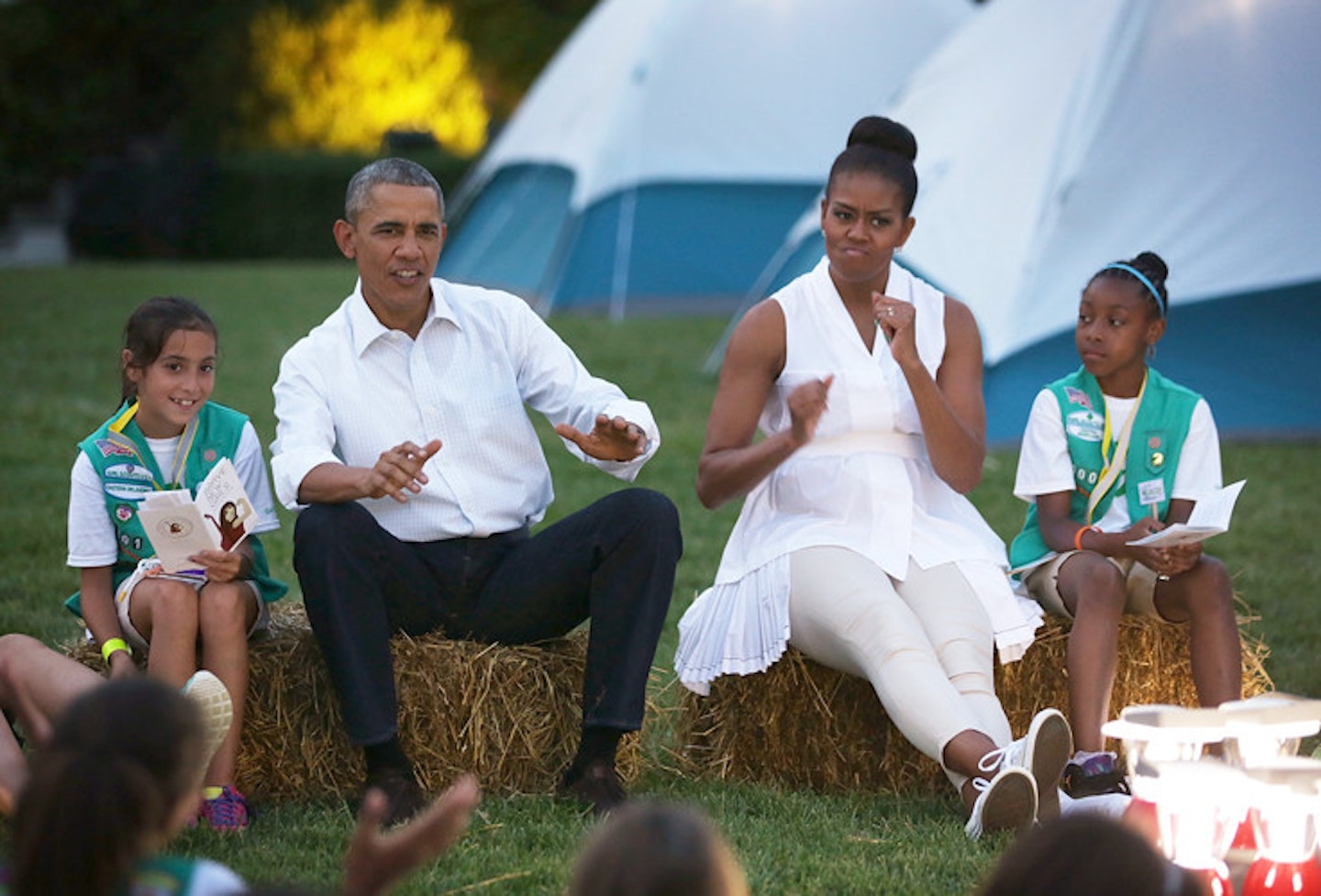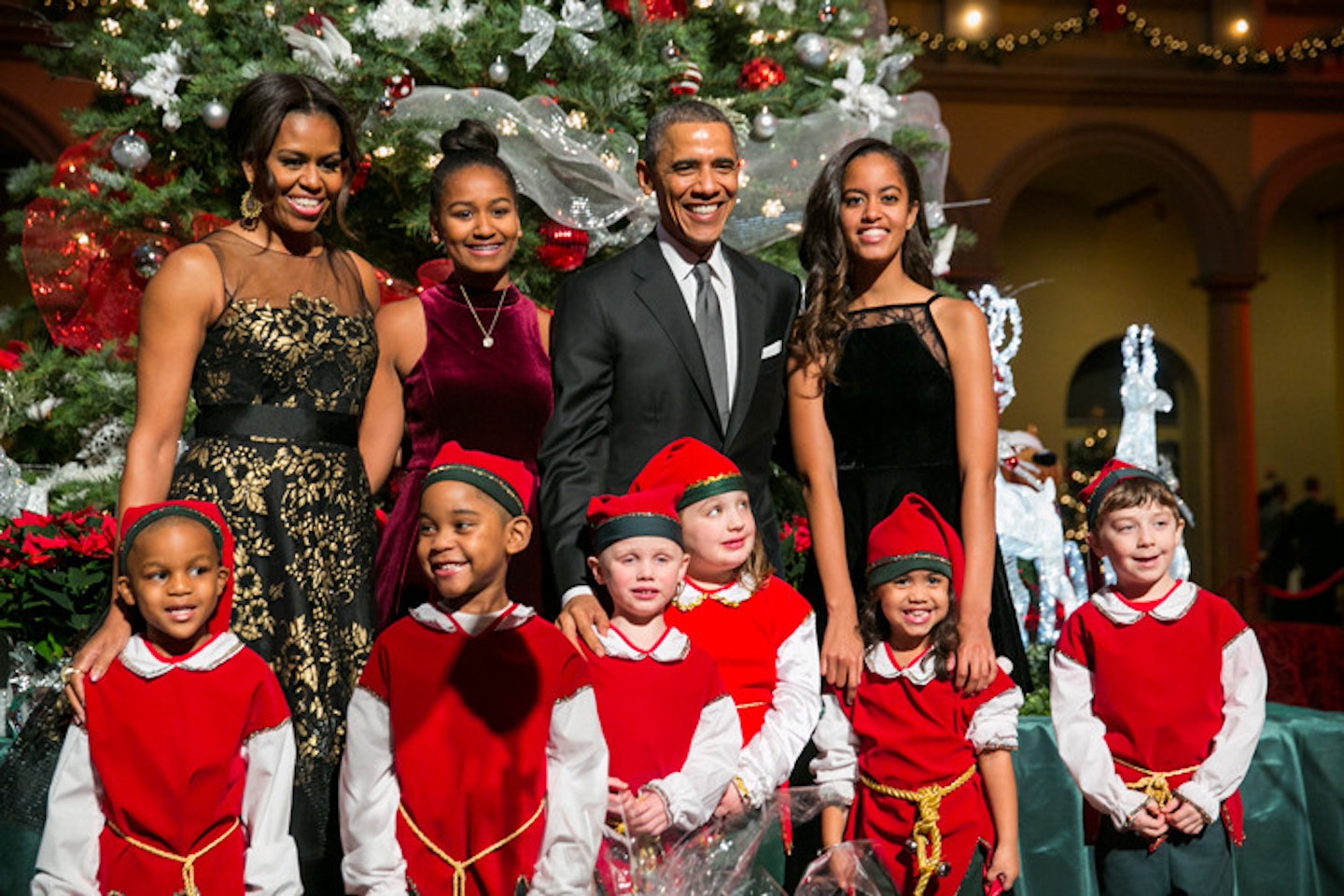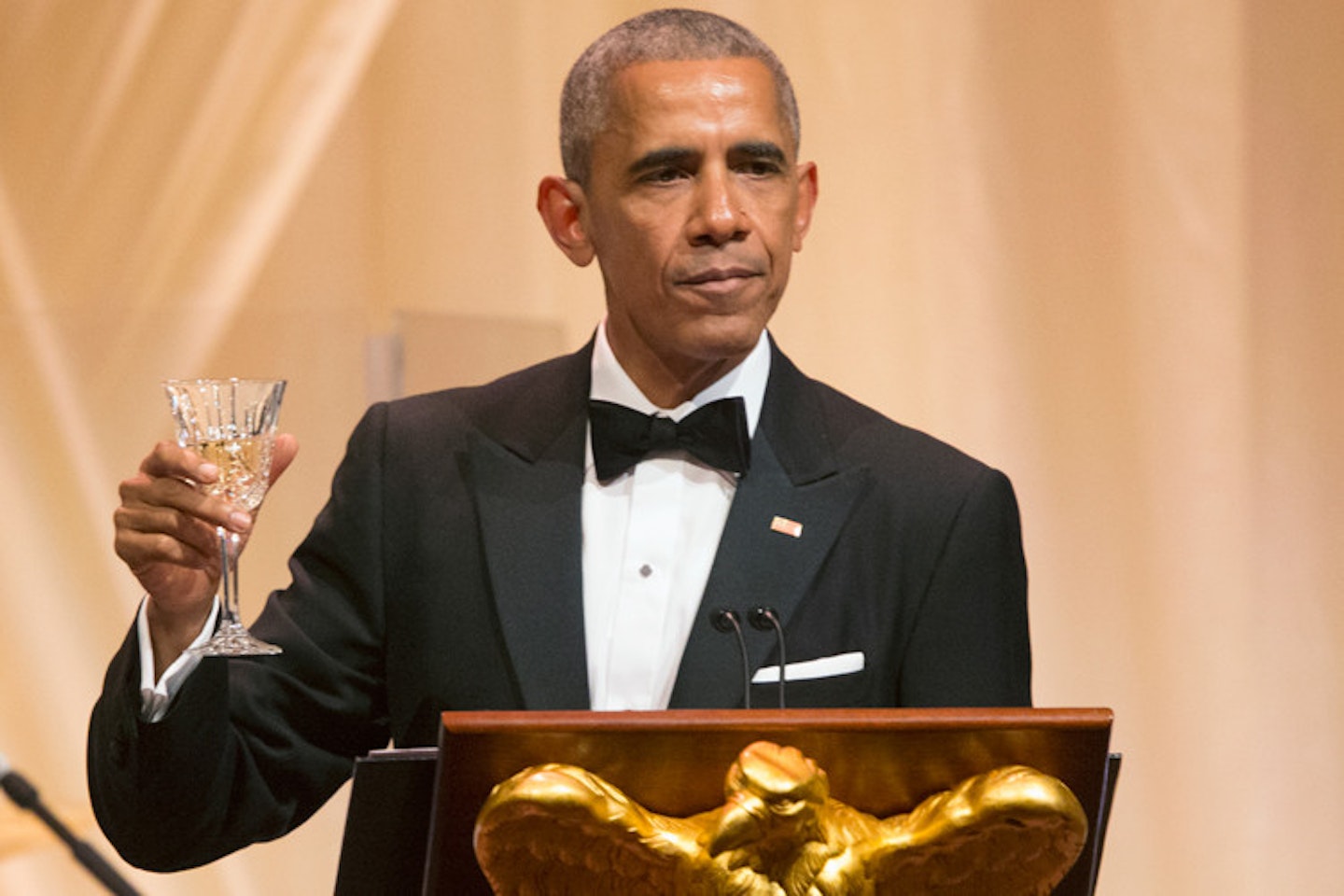'Post-racial society': it is a term that I have always struggled to accept. As a black Brit looking in on America from the outside, the phrase has never felt like anything more than an empty statement, an academic and theoretical term which hasn't translated in the real world. It remains a theoretical environment, an imagined world which is free from racial preference, discrimination and prejudice. Today, at best, it is a rhetorical plaster which has been used to cover the deep wounds of racism that America has inflicted upon it’s brown and black communities.
However, if I rewind the clock to the early hours of the morning on November 4th 2008, from in the pit of my bed, I was, for a moment, convinced that America had taken its largest leap to becoming the utopian post-racial society it has always dreamed of being, as my Facebook feed was cluttered with pictures of a black family that would become America’s first family. I was simultaneously stunned and overjoyed by the images and statuses celebrating the historic victory of the first black President. I grinned from ear to ear as I read a friend’s Facebook status: ‘I love Tupac, but he’s wrong. We are ready to see a black President.’ And, of course, I immediately played Changes after reading that.
How differently I felt yesterday. In the early hours of the morning on Wednesday November 9th 2016, when Donald Trump and his brand of racism repackaged for the social media era was elected to become the 45th President, two things dawned on me. Firstly, the idea of a post-racial society really is nothing but a myth, peddled by America to portray itself as holier than thou to its foreign counterparts. And secondly, what lasting impact has Barack and Michelle Obama’s presence in the White House really had on America if this can happen?
The 2016 race to the White House had many odd moments; throughout it was more reality TV show than political programming - from Melania Trump's stolen speech to Hillary’s shimmy in the first presidential debate, from Trump’s twitter feed and ‘lock her up’ mantra to Hillary’s embrace of the pantsuit as metaphor and mascot.

However, one of the greatest moments belonged to Michelle Obama. At the Democratic Convention, the First Lady made an emotional speech where she said: ‘I wake up every morning in a house that was built by slaves. And I watch my daughters, two beautiful, intelligent black young women, playing with their dogs on the White House lawn.’ Michelle’s words weren’t just powerful because her family’s time in the White House has shown that it is possible for black Americans to break the biggest barriers in American politics. In a few sentences, Obama changed the tone of a race conversation that is more often than not dominated by stories of African Americans’ struggles and defeats. She showed the world that a black family could achieve the ultimate American dream and inspired the global black community to believe that anything is possible.
We can all take something away from Michelle Obama’s challenge to how we should speak about race. Americans, like us Brits often try to turn a blind eye to our country’s history of racism. And there she was, on the most public of platforms, with the entire world watching her, talking about slavery and its role in building the country which she and her husband had been voted to lead and represent on a global stage. She confronted racism boldly, submitting herself to an inevitable backlash from America's right wing which accused her of race baiting.
However, Barack Obama’s presidency and America’s decision to elect Donald Trump as his successor has highlights that the race conversation has stayed stagnant in parts. A constant battle people across the diaspora face is having our identity questioned, or being made to feel like the other in a country we call home. While you and I, (if you’re a person of colour reading this), have probably experienced a work colleague that may have asked where we were really born when we say London or any part of the UK, Barack Obama had to deal with his nationality being publicly questioned by Donald Trump.

The Donald, (as Americans call him), refused to believe that the first black President could possibly have been born in the United States and demanded a copy of his birth certificate. The ‘birther’ controversy illustrated that even black people are born in America are never quite accepted or seen as ‘Americans’. People of colour are always seen as the other and America’s right wing, led by Donald Trump, were quick to remind the President and the rest of America that he too, was still viewed as other, despite being the leader of the free world.
Many had believed that Obama’s appointment as President proved that America had moved on. That the country was writing a new narrative on race relations. But the truth is that America was singing the same song all along, albeit more quietly. This was demonstrated by the murder of Trayvon Martin which exposed ongoing police brutality towards African Americans and confirmed that having a black man in the Oval Office wasn’t enough to eradicate systematic racist attitudes towards black people, black men in particular. If anything, Obama’s turn as President showed that America's deep wounds were far from healed; the plaster which had been stuck over the country’s racial tensions was slowly peeling off, exposing the deep racial divisions for all the world to see.
Narratives of blackness in America and across the globe are as subtle as they are complex. Some progress has been made. When it comes to black women we are not only battling racism but colourism. Michelle Obama’s time as First Lady has gone some way to debunking the acceptable mainstream image of a black woman: someone lighter skinned women with Eurocentric features. The First Lady has arguably become the unofficial face of the social media movement ‘Black Girl Magic’, which empowers black women to embrace their physical features and show the world that black women don’t need to submit to white beauty standards.
And yet, I can’t help but feel that, for all their work over the last eight years, Barack and Michelle’s impact has, for the most part, been symbolic. The fact that a black man had achieved the highest political office in the world made African Americans and black people beyond America believe that the Western superpowerhouse had finally shifted gears when it came to race, in doing so they gave us hope that we finally live in a world of racial equality. But when we look beneath the surface and social media hashtags, it’s clear that the last eight years has shown that black Americans today, like generations before them, are confined within and trapped by the realities of racial inequality and injustice.
When even the President and First Lady are subjected to racial prejudice from America’s white right, you can’t help but feel that it was naïve to believe that a large part of their legacy would be finally freeing the black community of the proverbial handcuffs that stifles our progress in the society. And, with an overwhelming majority of white Americans voting for Trump, a man who wants to build walls and fuel racial stereotypes, it feels like the conversation about race and blackness in America’s most powerful institutions is set to come to a permanent standstill. Trump’s election is proof, if you needed it, that white supremacy is alive and well. It’s also a reminder that the Black Lives Matter Movement is as relevant and necessary now as it ever was. Deeds, as ever, matter more than words.

You might also be interested in:
We Ask Young Women Across America How They Feel About Donald Trump's Election
How Are Young Women Of Colour Feeling Ahead Of Election Day?
Follow Tobi on Twitter @IamTobiOredein
This article originally appeared on The Debrief.
